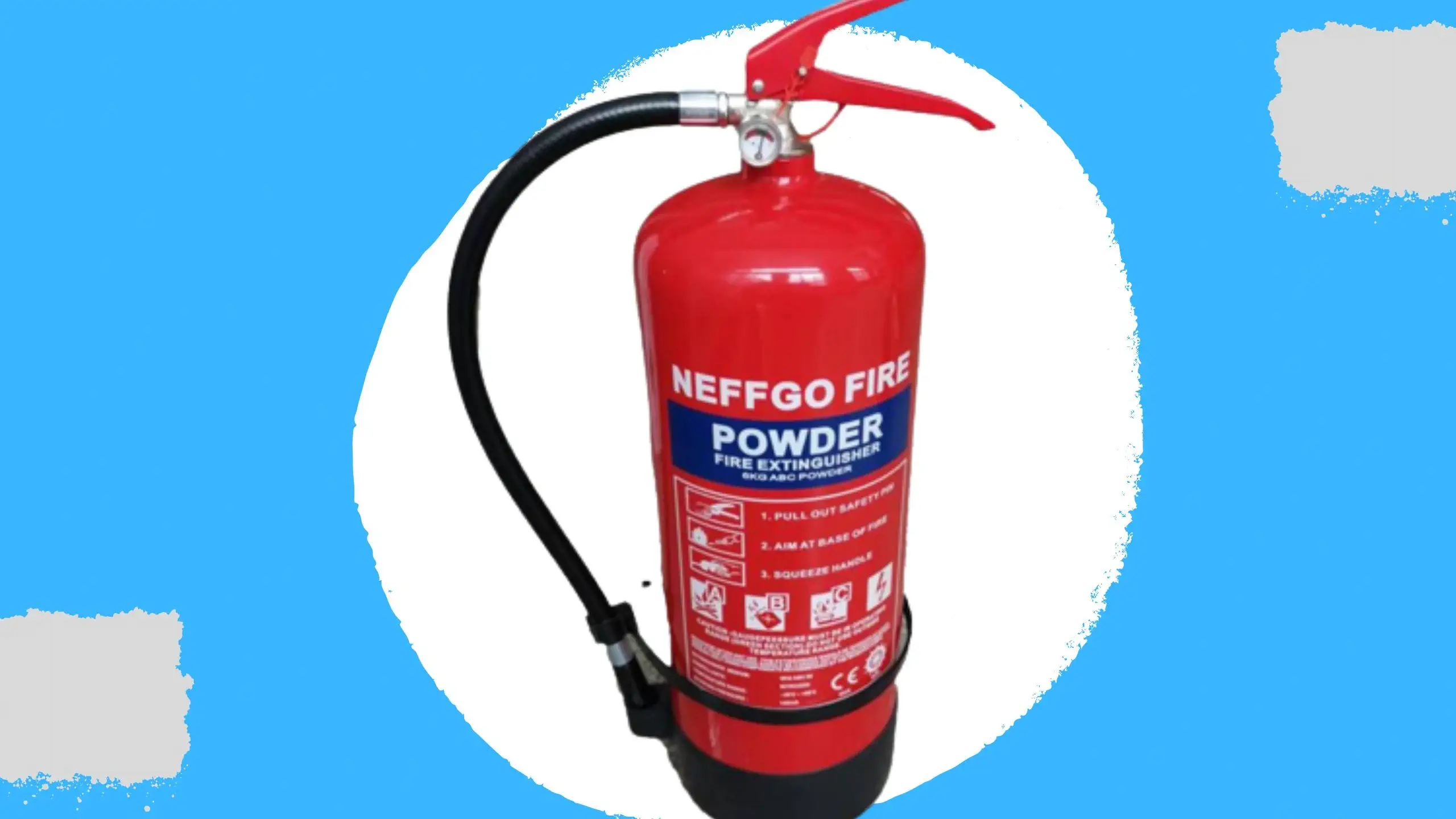Workplace Fire Hazards: Causes & Prevention
Could a single spark ignite a catastrophic chain of events in your commercial space? The potential for fire hazards to wreak havoc on businesses is a sobering reality. In this blog post, the critical topic of fire safety in commercial settings is highlighted.
If you need the right fire safety equipment for any purpose, kindly consider buying the Neffgo brand. You can find our list of distributors by clicking here.
Top Fire Hazards in The Workplace
Some of the key fire hazards that can arise in commercial settings.
1. Improper Storage of Flammable Materials: Flammable materials, such as chemicals, solvents, gases, and certain liquids, can easily ignite and fuel a fire.
If these materials are not stored properly, in designated storage areas with adequate ventilation, away from heat sources, and in appropriate containers, the risk of fire increases significantly.
2. Damaged Electrical Equipment: Electrical equipment that is damaged, frayed, or overheated can generate sparks, which in turn can ignite nearby combustible materials.
It’s crucial to conduct regular inspections of electrical systems, cords, and outlets to ensure they are in good condition. Overloaded circuits and improper wiring can also pose a fire hazard.
3. Blocked Emergency Exits: In the event of a fire, quick and safe evacuation is paramount. Blocked emergency exits or pathways can prevent people from escaping the building efficiently. Proper exit routes must be clear, well-lit, and free of obstructions at all times.
Other potential fire hazards in commercial settings include:
4. Lack of Fire Safety Equipment: Inadequate or malfunctioning fire safety equipment, such as fire extinguishers, smoke detectors, sprinkler systems, and fire alarms, can significantly compromise the ability to detect and respond to fires promptly.
5. Unattended Cooking Equipment: Kitchens and break rooms with cooking facilities can be prone to fires if cooking equipment is left unattended or if grease buildup is not properly managed.
6. Combustible Clutter: Excessive clutter, especially combustible materials like paper, cardboard, and other debris, can provide ample fuel for fires to spread quickly.
7. Poorly Maintained Heating Systems: Heating systems that are not properly maintained or cleaned can pose a fire risk, especially if they involve open flames or flammable materials.
8. Smoking: If smoking is allowed in or around the premises, improper disposal of cigarette butts can lead to fires, especially if they come into contact with flammable materials.
How to Avoid Workplace Fire Hazard
Here’s an overview of preventive measures that can be implemented to mitigate fire hazards in commercial settings:
1. Fire Safety Training: Provide comprehensive fire safety training to all employees, including proper handling of flammable materials, correct use of fire extinguishers, understanding evacuation routes, and the importance of reporting potential hazards.
2. Proper Storage of Flammable Materials: Store flammable materials in designated, well-ventilated areas away from ignition sources. Use approved containers and labelling, and ensure that incompatible materials are stored separately.
3. Regular Inspections: Conduct regular inspections of the facility, focusing on electrical equipment, wiring, and outlets. Address any damaged or frayed cords immediately. Inspect heating systems, cooking equipment, and other potential fire sources routinely.
4. Electrical Maintenance: Hire qualified electricians to perform routine maintenance and repairs on electrical systems. Avoid overloading circuits, use surge protectors, and ensure proper grounding.
5. Clear Exit Routes: Keep all emergency exit routes and doors clear of obstructions, clutter, and debris. Install emergency lighting and clearly marked exit signs for visibility during emergencies.
6. Fire Safety Equipment: Install and maintain fire safety equipment, including smoke detectors, fire alarms, sprinkler systems, and fire extinguishers. Conduct regular checks and tests to ensure their functionality.
7. Proper Waste Management: Implement a proper waste disposal plan to prevent the accumulation of combustible materials like paper, cardboard, and packaging. Keep waste bins away from heat sources.
8. Heating and Cooking Safety: Maintain and clean heating systems, chimneys, and vents regularly. In kitchens, enforce safe cooking practices, never leaving cooking equipment unattended and regularly cleaning grease buildup.
9. No Smoking Zones: Establish designated smoking areas away from the building. Provide proper receptacles for cigarette disposal and ensure that smoking regulations are strictly enforced.
10. Fire Safety Plan: Develop and communicate a comprehensive fire safety plan that outlines emergency procedures, evacuation routes, assembly points, and responsibilities of employees during a fire incident.
11. Emergency Contacts: Keep emergency contact information, including Ghana fire service numbers, medical facilities, and utility companies, readily accessible to all employees.
12. Fire Drills: Conduct regular fire drills to familiarize employees with evacuation procedures and ensure they know how to respond calmly and effectively in case of a fire.
13. Training for Fire Wardens: Designate and train specific employees as fire wardens or marshals. They should be responsible for guiding others during evacuations and assisting emergency services.
14. Fire-Resistant Building Materials: Use fire-resistant building materials for construction and interior furnishings to slow down the spread of fires and minimize damage.
15. Regular Maintenance: Implement a routine maintenance schedule for all areas of the facility, addressing potential fire hazards promptly and maintaining the overall safety of the premises.
By implementing these preventive measures and creating a culture of fire safety awareness among employees, commercial settings can significantly reduce the risk of fire hazards and ensure the safety of occupants and property.
If you need the right fire safety equipment for any purpose, kindly consider buying the Neffgo brand. You can find our list of distributors by clicking here.



